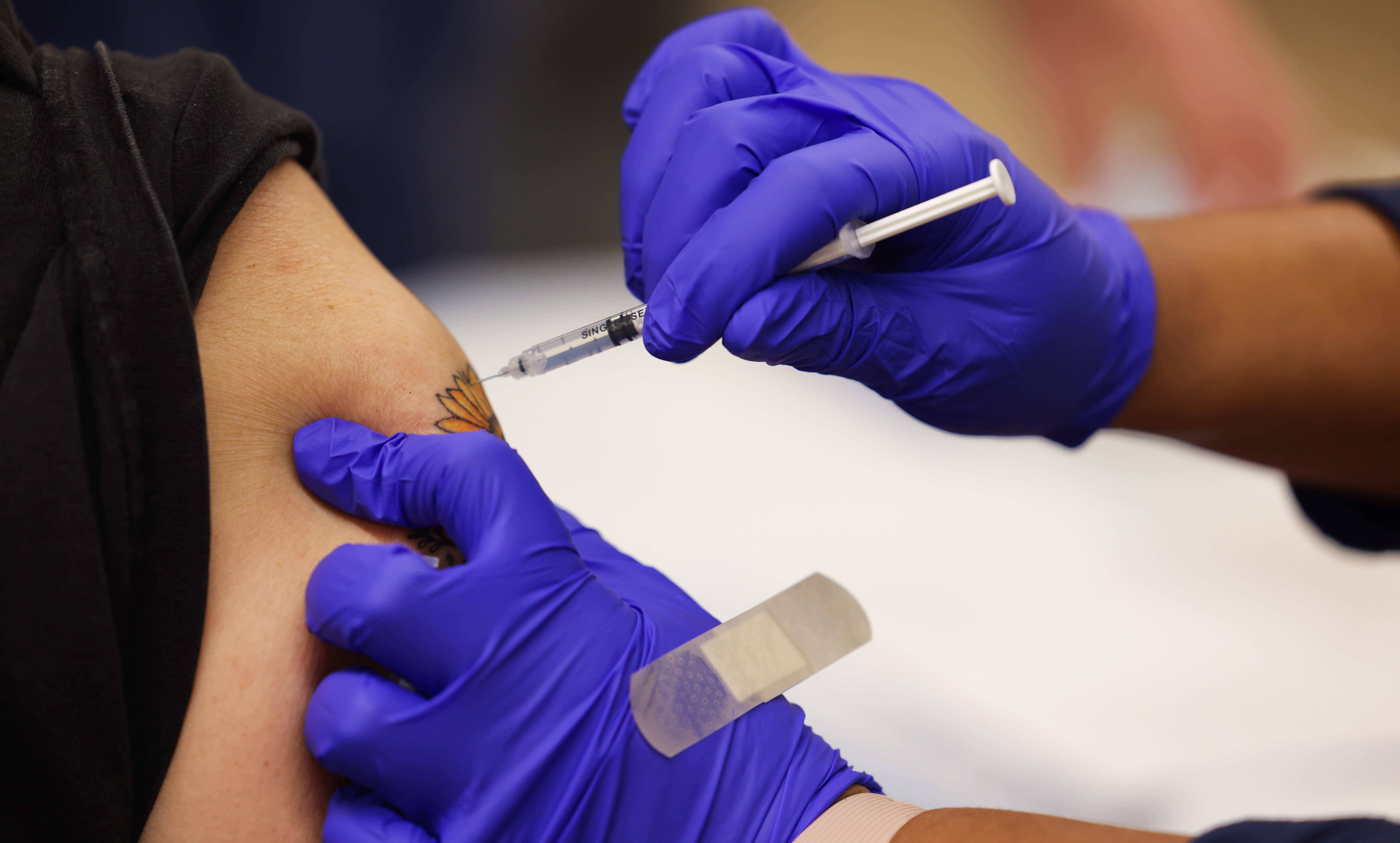
Freeport, N.Y.: Close-up shot of a Pfizer COVID-19 vaccine booster shot being administered in person’s arm as the Mount Sinai South Nassau Vaxmobile vists Freeport High School, in Freeport, New York on November 30, 2021.
Steve Pfost | Newsday | Getty Images
Three doses of Pfizer and BioNTech’s vaccine provide a high level of protection against the omicron variant of the virus that causes Covid-19, the companies announced on Wednesday.
A booster shot of the vaccine increases antibody protection 25-fold compared with the initial two-dose series, according to a preliminary lab study. A third shot shows virus fighting abilities comparable to the protection provided by two-doses against the original strain of the virus.
“Although two doses of the vaccine may still offer protection against severe disease caused by the Omicron strain, it’s clear from these preliminary data that protection is improved with a third dose of our vaccine,” Pfizer CEO Albert Bourla said in a joint statement with BioNTech.
“Ensuring as many people as possible are fully vaccinated with the first two dose series and a booster remains the best course of action to prevent the spread of COVID-19,” Bourla said.
The companies said two-doses of the vaccine showed a significant reduction in the ability of antibodies to target and neutralize omicron, though they may still protect against severe disease. Pfizer and BioNTech expect to have a vaccine that specifically targets omicron available by March 2022.
“Our preliminary, first dataset indicate that a third dose could still offer a sufficient level of protection from
disease of any severity caused by the Omicron variant,” said Ugur Sahin, CEO and co-founder of BioNTech.
The data comes after a small, preliminary lab study by South African scientists found that omicron evaded the protection provided by antibodies to a significant degree in blood samples taken from individuals fully vaccinated with the Pfizer-BioNTech vaccine.
Bourla said on Tuesday that omicron appears to cause milder symptoms, but seems to spreads faster and could lead to more mutations in the future.
“I don’t think it’s good news to have something that spreads fast,” Bourla told The Wall Street Journal during an interview at the paper’s CEO Council Summit. “Spreads fast means it will be in billions of people and another mutation may come. You don’t want that.”
While scientists believe that omicron spreads faster, they have said that more data is needed to determine the severity of disease caused by the variant.
“We will have a good understanding let’s say before the year-end as to what exactly it means for clinical manifestation,” Bourla said in reference to the omicron variant Tuesday.
This is breaking news. Please check back for updates.




